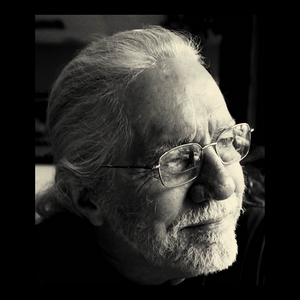The Founders clearly expected that the rights guaranteed by the First Amendment were binding upon the States and other authorities, even though the text was not explicit. Freedom of speech was viewed from the outset as a principle in law that was to be applied much more broadly than the literal words. Some, like John Adams, might even have imagined a day when freed slaves might be able to speak for themselves.
The Founders might have envisioned limitations that would abridge the implied right of free speech. And yet, it took decades for limits to be applied to speech that has always been regarded as dangerous, damaging, or illegal. Perhaps that vision inspired them to provide for the process of amending the Constitution that was adopted with the Bill of Rights.
The Founders would not have been able to foresee the milieu in which speech is carried out in the 21st century. The spoken word is accompanied by colorful moving images that can be transmitted instantaneously throughout the world. The written word may be sent, 140 characters at a time, to millions simultaneously, even while masking the true identity and interests of the source. Commercial messages, unbound by a duty to truth, can be repeated ad infinitum to sell a product of little worth manufactured by slave labor half way around the world.
Perhaps the greatest shock to the Founders would be to discover the role of money in speech. Because so much of what we see and hear is conveyed to us through mass media, it is filtered through the mask of moneyed interests. Big money is needed to create a television network. Big money is needed to build the Internet and provide access to it. Big money is needed to put a message on the airwaves. The Founders would be unprepared for our world of communication, and they would be shocked at the pervasive influence of big money.
WINNERS AND LOSERS
Freedom of speech allows us to speak, within limits, to express ourselves, to seek knowledge, to influence others, and to influence the course of a republic, however infinitesimally. Having this freedom affords us the opportunity to exercise our freedom. We may speak our minds, at no cost, to our friends and relatives with whom we are in contact.
With the confluence of money as speech together with corporations as persons, big-money interests gained an enormous advantage in the arena of mass communications - and political influence. No person has an unlimited attention span, so a deluge of messages assaults our senses. And many of those messages are sponsored, thank you. Others target public opinion for the purpose of influencing governmental policy or the election of policy makers. The sheer volume of messages we hear and see is generated by enormous amounts of money, and it drowns out the free speech of ordinary citizens. Because of mass media consumption, big-money interests can have their way with so much of public opinion that, in effect, the republic is theirs - not ours.
So we know exactly what the Founders said, and we have a pretty good idea of what they were thinking by examining the literal and historical context. But those who identify as constitutional originalists today defend the right of corporations to use their money to influence the direction of the republic through contributions to candidates and causes. Originalists regard any challenge to their position as a challenge to the very First Amendment that gives us that right to express our opposition to this silly idea. Is this nothing more than another example of money's influence in public policy? The Framers would surely agree!
When the courts hand First Amendment rights to corporations, and when they use it to promote their own interests, the speech of ordinary citizens is diminished. Corporations win, we lose.
[1] click here
[2] click here
[3] https://www.law.cornell.edu/wex/first_amendment
[4] https://www.oyez.org/cases/1900-1940/268us652
[5] https://supreme.justia.com/cases/federal/us/118/394/case.html
[6] https://www.oyez.org/cases/2008/08-205
[7] http://lawbrain.com/wiki/Symbolic_Speech
(Note: You can view every article as one long page if you sign up as an Advocate Member, or higher).




